Books
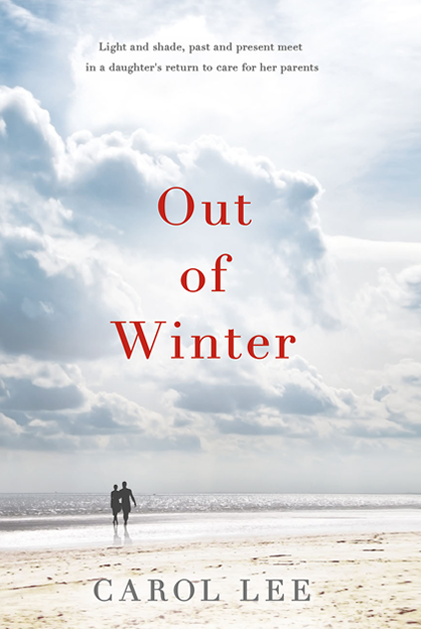
Out of Winter
A personal account of a universal subject: the unfolding nature of our relationships with our parents as they age and as the roles and boundaries between us begin to alter. In a candid portrayal of the last years of her parents' lives, Carol Lee confronts the sense of loss - and longing - at the heart of her family.They have often lived separately in different parts of the world and family ties aren't strong - or are they? Returning to help the parents she and her brother once determindly moved away from, she finds a fierce and unexpected love for them both and a path to precious material re-claimed from the past.
1
Reviews
'A beautifully written book... Essential reading.' – John Humphrys
'Carol Lee is a courageous writer. This book is both tender and tough minded...' – Maggie Gee
'Carol Lee is a courageous writer. This book is both tender and tough minded...' – Maggie Gee
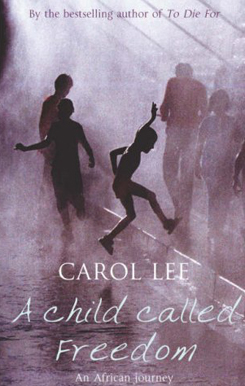
A Child Called Freedom
an African journey
Visiting southern Africa, where she lived briefly as a child, Carol's cousin takes her to the township of Soweto, near Johannesburg. Thousands of black schoolchildren once took to the streets here to protest at their poor education and hundreds were killed by police. Walking round a memorial site to them, Carol decides she must write their story.
Speaking to people in Soweto - living there for a while - she comes across a boy called Freedom in a squatter camp and begins to support him and his brother Andile to go to school. Keeping in touch with them over the years, she knows how difficult life still is in South Africa. As well as honouring the youth of '76, in A Child Called Freedom Carol delivers a searing account of the ANC's betrayal of its own people.
1
Reviews
'If ever there was a book for our time, Carol Lee's A Child Called Freedom is it. Part memoir, part historic account, it weaves together voices of people speaking across the years.' – Western Mail, Cardiff
'Thirty years on, the word 'Soweto' still tolls like a mourning bell. Lee sees through her own eyes the present South Africa where education is still difficult and democracy a weasel word.' – The Times
'Carol Lee has painted us a picture of what happened that fateful winter morning... It is a picture that deserves to hang on walls. It deserves our attention.' – The Zimbabwean
'Thirty years on, the word 'Soweto' still tolls like a mourning bell. Lee sees through her own eyes the present South Africa where education is still difficult and democracy a weasel word.' – The Times
'Carol Lee has painted us a picture of what happened that fateful winter morning... It is a picture that deserves to hang on walls. It deserves our attention.' – The Zimbabwean
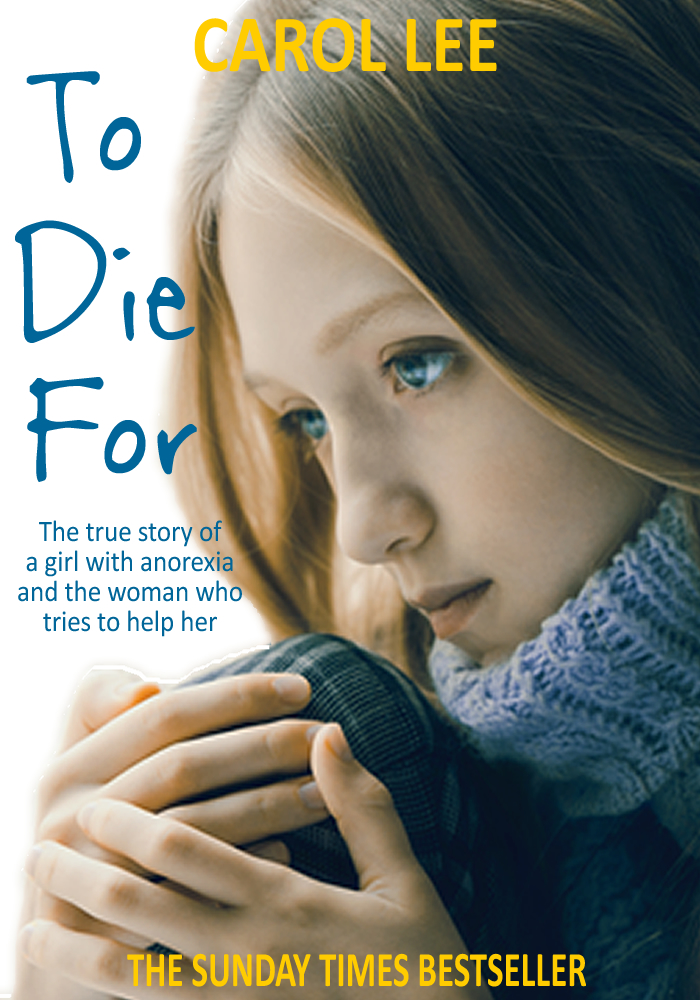
To Die For
When her god-daughter 'Emma' developed anorexia at the age of 15, their close relationship gave Carol an intimate vantage point of the illness which consumed five years of her god-daughter's life.To Die For was was a UK best seller and is the story of 'Emma's' successful struggle with the conditions which nearly killed her.
Now in her 30s, 'Emma' has remained free of anorexia and she and Carol are still close.
1
Reviews
'A moving account of one woman's struggle with anorexia.'
– Independent
'Heartbreaking but fascinating.' – Heat
'Heartbreaking but fascinating.' – Heat
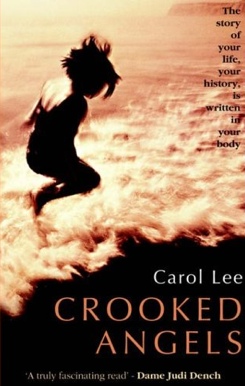
Crooked Angels
Waking one morning to find she had suddenly lost the use of her arms, Carol spent more than a year discovering the cause. Forced to sit still to avoid pain, spending hours every day in an armchair, black and white pictures from the past emerged in her mind - and were the first clue to her recovery.Linking them with events from the past, she found that behind the beautiful landscapes and exciting times of her childhood, lay deep distress and trauma. A successful career and a workaholic lifestyle had kept Carol from recognising this. But now her body had called a halt and she found that emotions which were too painful to withstand when she was young had been kept till she was ready to face them: stored in her body.
Crooked Angels was short-listed for the Mind Book of the Year award.
1
Reviews
'Crooked Angels is part autobiography, part travelogue, part detective story... A natural storyteller, the result is complex, compelling and memorable.'
– Scotland on Sunday
'This is fine writing. Crooked Angels is a landmark in the literature of psychosomatic discovery. It has insights for us all.' – British Journal of Psychotherapy
'To write about this experience with compassion and insight is impressive in itself; to do it without rancour, and with such narrative sureness, is a major achievement.' – Joan Smith, Independent on Sunday columnist
'This is fine writing. Crooked Angels is a landmark in the literature of psychosomatic discovery. It has insights for us all.' – British Journal of Psychotherapy
'To write about this experience with compassion and insight is impressive in itself; to do it without rancour, and with such narrative sureness, is a major achievement.' – Joan Smith, Independent on Sunday columnist
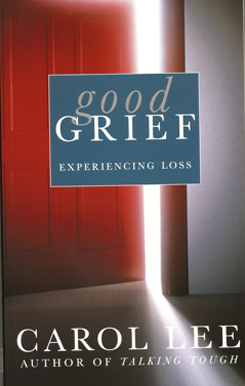
Good Grief
Experiencing Loss
With the sudden death of a friend, Sally, at the age of 27 and of her cousin, Linda, at the age of 31, Carol found people unable to understand and accept her grief.
Years later, interviewing people about their experiences, she found them to be similar. Their stories and journeys are explored in Good Grief.
1
Reviews
'In Good Grief, journalist Carol Lee investigates the nature of loss from different viewpoints and presents a compelling collection of stories.'
– Scotland on Sunday
'Grief would seem a subject done to death by counsellors and therapists, but Carol Lee has found new material....' – Harpers and Queen
'Carol Lee has had many conversations with those who have suffered loss, and Good Grief is well illustrated with both familiar and eccentric perspectives... This is a simple, readable yet insightful book.' – Self and Society
'Grief would seem a subject done to death by counsellors and therapists, but Carol Lee has found new material....' – Harpers and Queen
'Carol Lee has had many conversations with those who have suffered loss, and Good Grief is well illustrated with both familiar and eccentric perspectives... This is a simple, readable yet insightful book.' – Self and Society
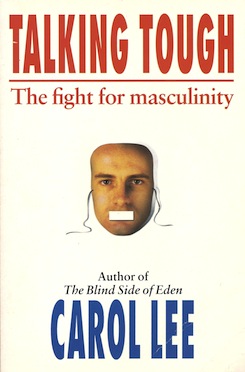
Talking Tough
the Fight for Masculinity
Travelling in Europe and America, Carol interviewed boys and young men about their experiences of becoming a man in a rapidly-changing world.
Were they 'lost heroes' or 'liberated people?' and what were their views, hopes and dreams, she wondered.
Contrary to what she was told to expect, no-one refused to be interviewed.
1
Reviews
'Carol Lee, a writer who seems to possess non pareil skills at finessing the most recalcitrant interviewees, has excelled with Talking Tough, a remarkably compelling account of how young men perceive their masculinity.'
– The Bookseller
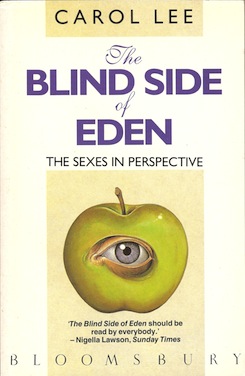
The Blind Side of Eden
the Sexes in Perspective
Written at a time when some eminent feminists excluded men from their cause, Lee described this as an 'own goal.'
In this classic despatch from the front line, she interviewed men as well as women for their viewpoints on the radical changes feminism brought about in their relationships and their lives.
1
Reviews
'The Blind Side of Eden should be read by everybody.'
– The Sunday Times
'Hard-hitting... determinedly down to earth and irresistibly humorous.' – New Statesman & Society
'The Blind Side of Eden is bound to cause a few waves, not least because of its passionate fluency... It is a stimulating argument.' – The Times
'Hard-hitting... determinedly down to earth and irresistibly humorous.' – New Statesman & Society
'The Blind Side of Eden is bound to cause a few waves, not least because of its passionate fluency... It is a stimulating argument.' – The Times
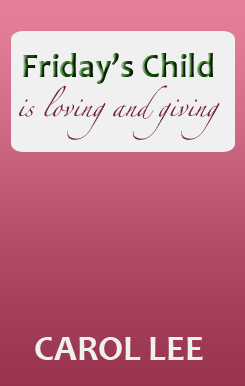
Friday's Child
Is Loving and Giving
A passion for education combined with her experience of working with teenagers in programmes of sex education form the basis for Carol's plea for classroom work which encourages people to think.
She argues that education should be an enlivening activity in which people learn about themselves and the world around them. It is a process of engagement, not instruction.
1
Reviews
'This is a compelling story by Carol Lee, a teacher and adviser in the field of sex education, as well as a consultant for BBC and ITV.'
– The Teacher
'Friday's Child includes some fascinating insights into classroom reaction when teenagers are encouraged to explore their feelings... Sadly, such grassroots work is considered reactionary in the current climate...' – Liverpool Daily Post
'Carol Lee combines her skills as a journalist and sex education teacher and adviser to mount a comprehensive demolition of those she scathingly describes as the Moral Right.... She argues powerfully for enlightened sex education in schools which she believes is in jeopardy because of the vocal and vociferous views of a minority.... bad news for those who want belanced and caring future generations.' – The Journal, Newcastle upon Tyne
'Friday's Child includes some fascinating insights into classroom reaction when teenagers are encouraged to explore their feelings... Sadly, such grassroots work is considered reactionary in the current climate...' – Liverpool Daily Post
'Carol Lee combines her skills as a journalist and sex education teacher and adviser to mount a comprehensive demolition of those she scathingly describes as the Moral Right.... She argues powerfully for enlightened sex education in schools which she believes is in jeopardy because of the vocal and vociferous views of a minority.... bad news for those who want belanced and caring future generations.' – The Journal, Newcastle upon Tyne
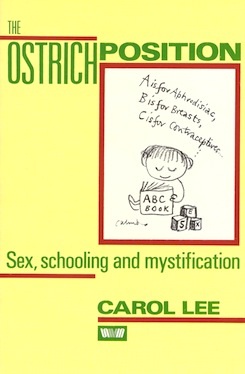
The Ostrich Position
Carol's first book, a prelude to Friday's Child, is an account of her experience teaching sex education in London schools and is as relevant now as when she wrote it. This unexpected work came from interviewing a doctor about teenage sex and being told: 'We need good sex education in schools.'Asked to attend a seminar on the subject, Carol ended up teaching part-time - and writing about what she found. Her way of asking teenagers what they wanted to know, gained their trust - and the anger of politicians who accused her of leading the nation's youth astray.
Her work in schools was widely filmed and was defended by teachers and pupils in numerous public debates.
1
Reviews
'Lucid, feisty polemic about the unfunny farce that passes for sex education.'
– The Sunday Times
'Carol Lee's ingenious strategies for winning her pupils' attention and respect make this a very readable book.' – New Statesman
'Sex plus teenagers equals hypocrisy and confusion, according to this energetic account... The hypocrisy is mostly from adults, unless of course they have been enlightened by the excellent Carol Lee.' – New Society
'A very funny book... very revealing about how children really view sex and sexuality.' – The Journal, Newcastle
'Here is a story of dogged and often desperate heroism on the part of the author.... People as dedicated as Carol Lee deserve our gratitude.' – The Times
'Reaching out and making contact with young people is not easy. Carol Lee has the most basic qualifications for succeeding. She likes teenagers and argues both passionately and compassionately that they should be allowed to understand sex education as just one piece of the jigsaw of human relationships.' – Western Mail, Cardiff
'Carol Lee's book vividly and humorously describes her experiences of teaching sex education and challenges 'the ostrich position' of teachers, doctors, parents and politicians. It should be essential reading. – Family Planning Today
'Carol Lee's ingenious strategies for winning her pupils' attention and respect make this a very readable book.' – New Statesman
'Sex plus teenagers equals hypocrisy and confusion, according to this energetic account... The hypocrisy is mostly from adults, unless of course they have been enlightened by the excellent Carol Lee.' – New Society
'A very funny book... very revealing about how children really view sex and sexuality.' – The Journal, Newcastle
'Here is a story of dogged and often desperate heroism on the part of the author.... People as dedicated as Carol Lee deserve our gratitude.' – The Times
'Reaching out and making contact with young people is not easy. Carol Lee has the most basic qualifications for succeeding. She likes teenagers and argues both passionately and compassionately that they should be allowed to understand sex education as just one piece of the jigsaw of human relationships.' – Western Mail, Cardiff
'Carol Lee's book vividly and humorously describes her experiences of teaching sex education and challenges 'the ostrich position' of teachers, doctors, parents and politicians. It should be essential reading. – Family Planning Today
